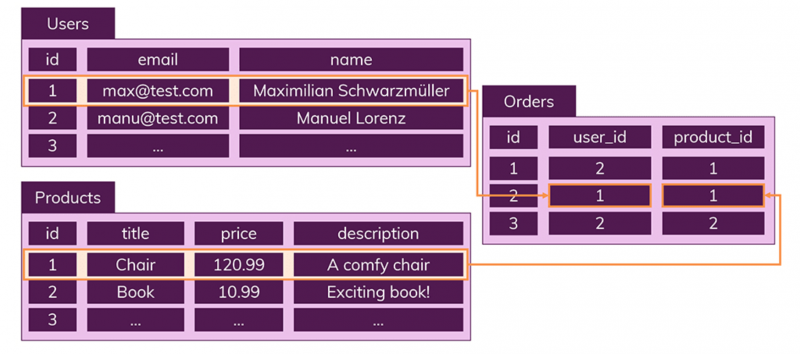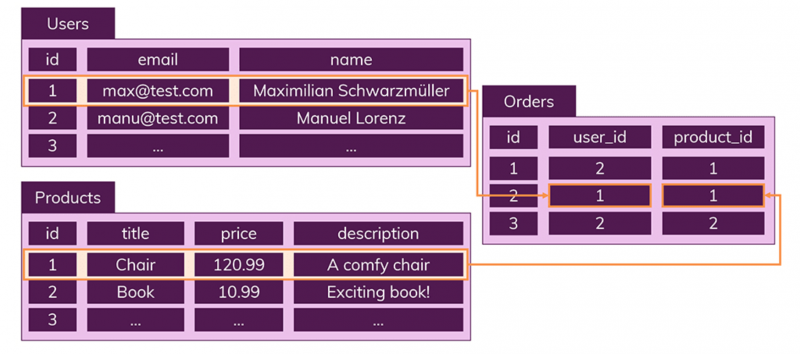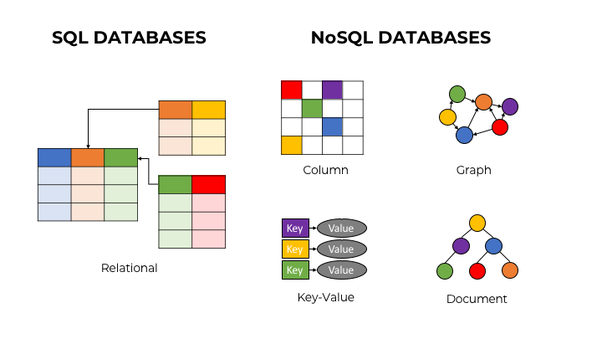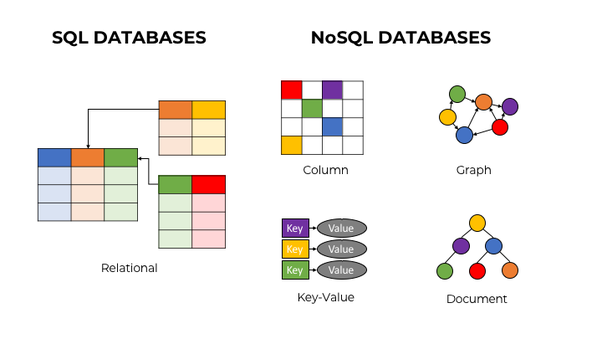
MMS • RSS
Posted on nosqlgooglealerts. Visit nosqlgooglealerts
Whether you are an organization or a developer, handling a data-intensive project means that eventually, you will have to choose a database that will help you properly implement and manage your project.
The database landscape is mainly divided into two classes: SQL (relational databases) and NoSQL (basically anything that is not relational). Whether you lean towards a SQL or NoSQL database (sometimes a company will rely on both for different projects) depends on the kind of data you are dealing with, how you intend to query it, and your scalability needs.
Before we dive into the specifics of NoSQL vs SQL, we will first look at what these databases look like and the kind of difference they can make for your project.
SQL stands for ‘Structured Query Language’—which points to its first defining attribute—it is used for data that is primarily structured. It is composed of connected tables where each row represents a recorded entity (ex. a customer), and each column represents an attribute that describes that entity (ex. age, address, item purchased, etc.).
Let’s say you have a table of customer purchases from the last six months and a table containing the customers’ information, such as their email address. Each purchase in the first table would then relate to a specific customer from the second table, which is why SQLs are primarily referred to as relational databases.
Because of the structured nature of SQL databases, their schema is designed before inserting data.


What Is A NoSQL Database?
NoSQL refers to a database that is not relational, or not written in SQL language. These databases do not follow the common structured schema that is inherent in relational databases, but rather have an implementation-specific structure. Based on the desired implementation, NoSQLs are divided into four main types: document, tables, graphs, or key-value databases.
Main Things To Consider When Choosing Between SQL And NoSQL Databases
Data Structure
The first factor to consider when making the NoSQL vs SQL decision is the kind of data you are working with.
If your data is mainly structured, you will likely use a SQL database. Examples of such data sets are customer relationship management software, accounting tools, and e-commerce platforms. Because of the structured relationship between the rows and columns in the SQL data tables, you should consider a SQL database if you need ACID compliance. ACID stands for:
- Atomicity: A transaction is either successful or is completely denied. For example, if you’re shopping on an e-commerce site, you can only pay if you have an item in the shopping cart, otherwise, the transaction fails.
- Consistency: For data to be written into a database, it must follow predetermined data validation rules. If you try to add data that does not comply with these rules, the system will roll it back (bring it back to its previous state).
- Isolation: When more than one transaction is occurring at the same time, they will not overlap, but rather be processed sequentially. If, for example, there are two shirts in stock on a website, and two customers want to purchase them at the same time, only one transaction will be completed first, and the other customer will be able to buy whatever remains from the stock.
- Durability: Data is permanently saved once a transaction has been completed, even if a system failure or power outage occurs.
ACID compliance protects your data from anomalies and guarantees the validity of transactions even in the event of errors.
On the other hand, NoSQL databases do not require a predefined schema for the data. This provides more flexibility by allowing you to:
- Create documents without defining their structure beforehand;
- Add fields to your database without altering fields in existing documents;
- Store documents that have a unique structure;
- Work with multiple databases that have different structures.
For these reasons, a NoSQL database is more fitting for data such as social media posts, article content, and other types of unstructured datasets that will not properly fit into a table.


Data Query Ability
The next thing to consider is how often you plan to query your data, the speed at which you wish to run the queries, and who will run the queries.
A SQL database is efficient and flexible when it comes to performing queries since it is structured and neatly organized. SQL is also a well-established programming language and is thus efficient and easier to learn. Therefore, less technical staff like business analysts or marketers will be able to run the queries.
A NoSQL database is flexible regarding the kind of data you can store, but the potentially significant discrepancies in data structures can limit the efficiency you can query. In order to perform NoSQL queries, you will have to add some extra steps to the data processing. NoSQL queries thus require developers or data scientists.
Scalability
SQL and NoSQL databases have different scaling abilities, so you will have to consider whether your data sets are likely to grow in the future.
SQL databases mainly scale vertically, meaning that you can quickly improve the server’s processing capacity (by adding CPUs or memory). However, since they were designed to run on a single server, they are not easy to scale horizontally, making them ill-suited for larger volumes of data.
NoSQL databases can scale horizontally, allowing you to add more servers to handle larger data stores without compromising the performance. Objects can be easily stored across multiple servers without added links to the servers. This is not applicable for SQL databases since each table row and column needs to be related.
In the long run, a NoSQL database can become larger and more powerful, leading to NoSQL databases being the preferred choice for large or changing data sets.
Final Words
When picking between a SQL and NoSQL database, you should think about the type of data you will be working with, how you will query it, and your scalability needs. You should choose either one of the databases if your data fill the following criteria:
SQL database is best suited for:
- Structured data with defined data requirements.
- Flexible and less technical queries.
- Smaller or unchanging data sets.
NoSQL database is better suited for:
- Unstructured data with evolving data requirements.
- Ability to code and perform more complex queries.
- Scalability and performance are prioritized.